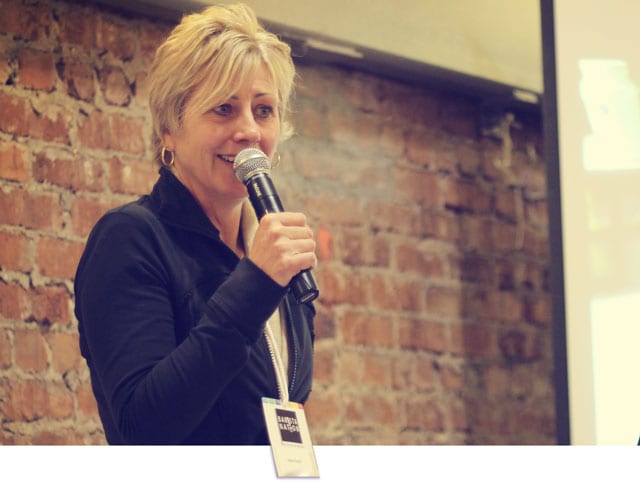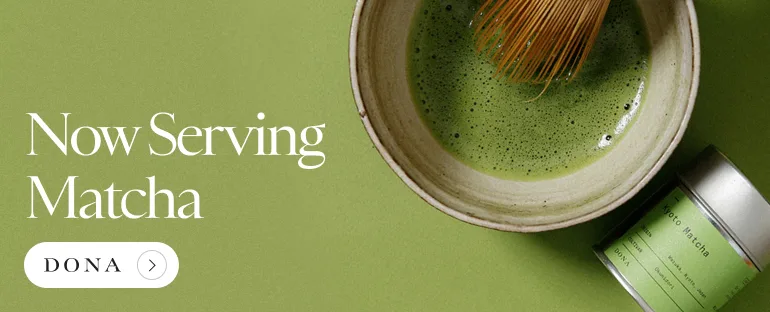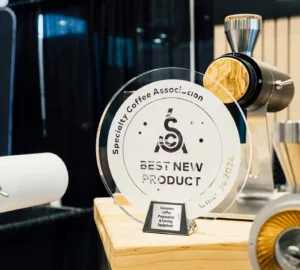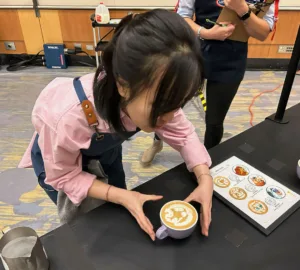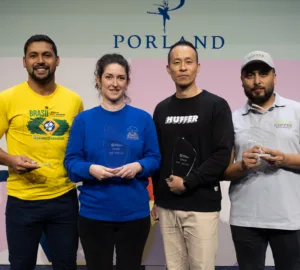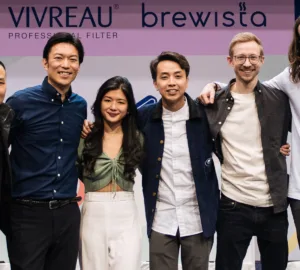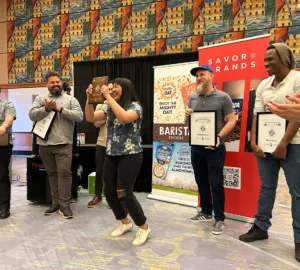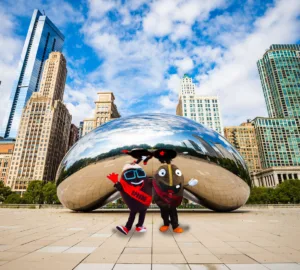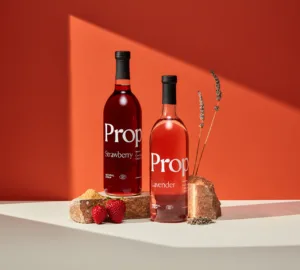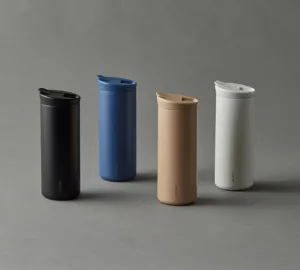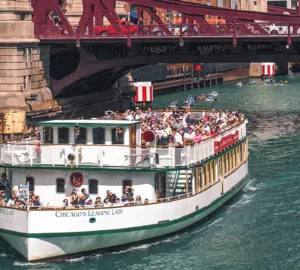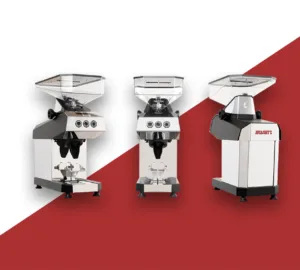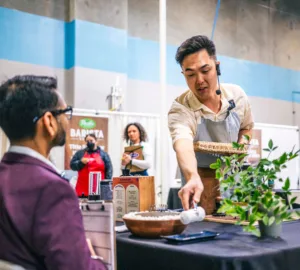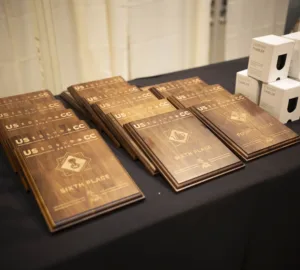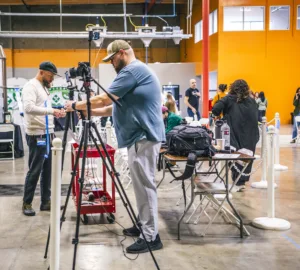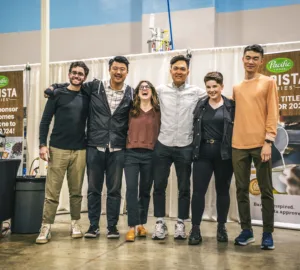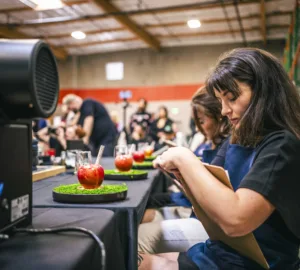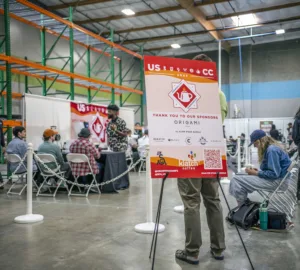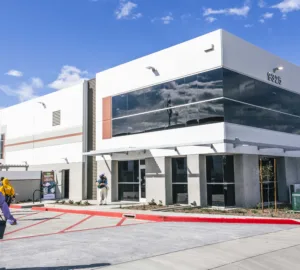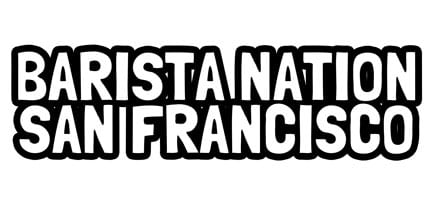 Anastasia Chovan looked out to the sold-out crowd at the Women’s Building in San Francisco’s Mission District. Her audience was a diverse crowd of coffee enthusiasts and professionals, more than two hundred and fifty in total, over half of whom were attending a Barista Nation event for the very first time. For much of the last three years, Chovan has taken the Barista Nation show on the road, setting up an impressive series of programs in cities like Portland, Los Angeles, Tokyo, and Paris. These events are sponsored in part by her employer, Unic, but as she stressed to the early morning crowd in San Francisco, “It’s not a Unic event, it’s not a David Rio event, it’s your event.”
Anastasia Chovan looked out to the sold-out crowd at the Women’s Building in San Francisco’s Mission District. Her audience was a diverse crowd of coffee enthusiasts and professionals, more than two hundred and fifty in total, over half of whom were attending a Barista Nation event for the very first time. For much of the last three years, Chovan has taken the Barista Nation show on the road, setting up an impressive series of programs in cities like Portland, Los Angeles, Tokyo, and Paris. These events are sponsored in part by her employer, Unic, but as she stressed to the early morning crowd in San Francisco, “It’s not a Unic event, it’s not a David Rio event, it’s your event.”
San Francisco-based David Rio Chai are longtime sponsors of these events, and David Rio’s Brian Cornelson served as the event’s MC, taking the stage to introduce the day’s theme (every Barista Nation event has a different theme, which is part of what makes each one uniquely different). The third annual San Francisco Barista Nation was centered around the concept of The Good Café. Brian asked, “What is it about the human condition that makes us want to congregate in a cafe?” He went on to explain that elements of trust, purpose, confidence, stewardship, and love were key components to creating the overall experience of a truly Good Cafe. The theme was evident at each lecture, panel discussion, and workshop held at Barista Nation San Francisco.
The event kicked off with a stirring lecture from Equator Coffee & Tea’s co-founder Helen Russell, who began her career in coffee in the early 90s alongside her partner Brooke. From cafe owners to founders of a wholesale specialty coffee roaster, Brooke and Helen’s careers have led them to the beautiful sleepy hills of San Rafael, where Equator is based, a quiet town in Marin County just north of San Francisco. Relationship coffee is a core value of Equator’s ethos, and frequent trips to producing countries were not uncommon for the two as they built out their niche in the Bay Area coffee community. Their passion and dedication ascended to another level in 2007, when the pair teamed up with Willem and Katherine Boot and went in search for a coffee farm in Central America.
“The generosity of the Panamian farmers” drew them to Panama, she told the crowd. They were especially taken with a nineteen hectare estate known as Finca Sofia, in the Bugaba District of Panama’s Chiriqui province. “We fell in love with this farm the moment we hiked up,” Helen said, as slides of the sweeping valley were projected on the screen. “We looked upon Cerra Punta, we were totally overwhelmed by the sheer beauty of this farm.”
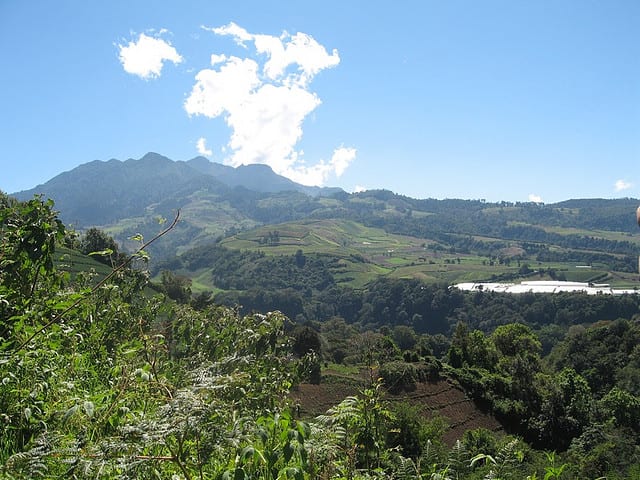
According to Russell, at 2175 meters Finca Sofia is the highest coffee farm in Central America. For reference, the award-winning Hacienda La Esmeralda’s highest point is 1800m. High elevation generally means a higher quality coffee, but at the cost of lower yields and extended harvests. Finca Sofia employs nine full-time workers (there are currently twenty-two employees at Equator HQ in San Rafael).
“We wanted to grow the best coffee in the world there,” Helen told the crowd, with an emphasis on instilling the values of a “new generation” of relationship coffee: valuing the people, the environment, and stewardship. In their Mission Statement, they “strive to be outstanding in all areas, serve to be a model for future generations and all coffee farms”, and they hold very dearly the notion that “adopting an attitude of teamwork and respect is of the utmost importance.”
Helen told the story of Angelica – one of four children of Finca Sofia workers Angelia and Angel. At an early age Angelica was stricken with a leg infection, and at two miles up and an hour walk from the nearest village, getting medical treatment was near impossible, and most certainly a daunting and expensive endeavor for the parents. Helen took her to a hospital in the neighboring village of David, whose doctors gave her an unthinkable prognosis: the deformation of the leg was so severe it required amputation.
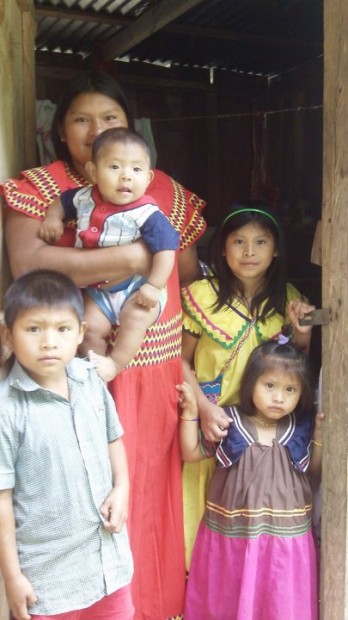
Helen and Brooke took Angelia, Angel, and Angelica to the US for treatment. It was their first time outside of Panama. The Shriner’s Hospital in Tampa fit Angelica with a prosthetic leg, and after three months of rehabilitation was ready to return home.
As a benefit to working with Finca Sofia, the children’s tuition to a private school in the village is paid for by the owners. Because the school bus picks up the children at the bottom of the hill, and with Angelica’s mobility impaired, Helen and Brooke got her a horse to ride to the bus. The horse’s name is Barista.
“This is why I do what I do,” Helen tells us, “being able to make a difference in another person’s life – so dramatically as this is.”
When they arrives to Sofia, worker’s housing was abysmal. The families suffered from respiratory problems from their cold, dank sleeping quarters. Because the farm is two miles up and hour walk from the nearest village, worker housing was essential. Finca Sofia strives to be a role model of sorts when it comes to providing its workers with the best amenities.
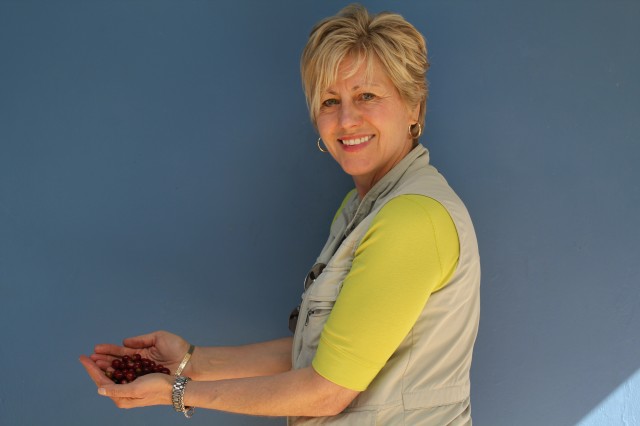
Helen and Co. researched sustainable housing for their workers and the process took a year. They reached out to their workers to ask what they wanted in housing. “The men wanted larger bedrooms with bigger locks, but the women wanted a bigger kitchen and community space. The women got the larger kitchen.”
The new housing was built to be drier, warmer, and more comfortable. They installed imported “clean cook stoves” that provided the residents with a clean-burning fuel source with proper exhaust to prevent their homes from filling up with smoke.
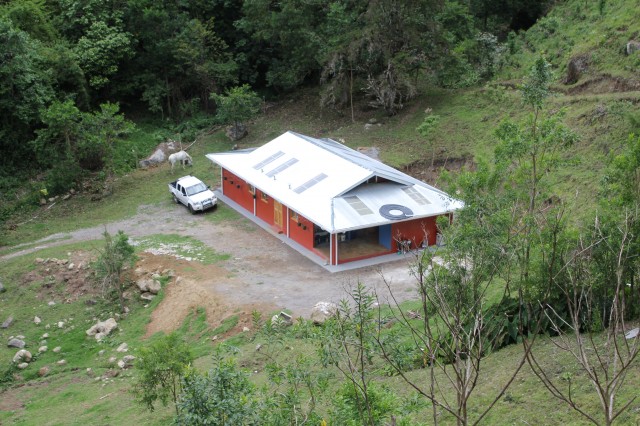
“This is about the environment – we have a garden at the top of the farm where workers grow their own vegetables. We built a stable for Barista, raised chickens, and we’re trying to do everything in a very sustainable manner, thinking about the stewardship of the land and as we grow the farm.”
Since October of 2007, over 10,000 shade trees have been planted. “So many neighbors are deforesting – we’re reforesting.” When they took over the farm, there were a lot of animals on the farm – cats and dogs. They took all of the animals to the village to get them all neutered. They now have healthy and cared for animals – three dogs and four cats.
The owners purchased seedlings from the Elida Estate (home of the Good Food Award winning Verve Coffee Finca Elida Green Tip Gesha), Finca Harmon, and the aforementioned Hacienda Esmeralda. Helen joked that they were able to secure two thousand seedlings from the Peterson’s after a few margaritas. In all, over 30,000 seedlings – at $1.50 per seedling – were purchased over time.
It will take eight years for the seedlings to fully mature and produce an ample harvest. Helen projects that the first full harvest will be in 2014 – and you can see the enthusiasm in her eyes. For her, the project is about trust, purpose, confidence, stewardship, and love – and all of those elements will culminate in a cup of Finca Sofia coffee.
We’ve watched a number of fascinating, educational lectures throughout our time covering and working with Barista Nation, on topics as diverse as cafe architecture, espresso blend construction, and the history of specialty coffee as we know it. But this presentation from our friends and partners at Equator Coffee is one of the more stirring specialty coffee talks we’ve ever enjoyed, at Barista Nation or elsewhere.
Look for more coverage of Barista Nation San Francisco in the coming days on Sprudge, and get ready for a big Barista Nation announcement for USBC Boston in the coming weeks.
Further reading:
Equator Coffee: Finca Sofia, The Road Ahead
Daniel Humphries Visits Finca Sofia (YouTube)











